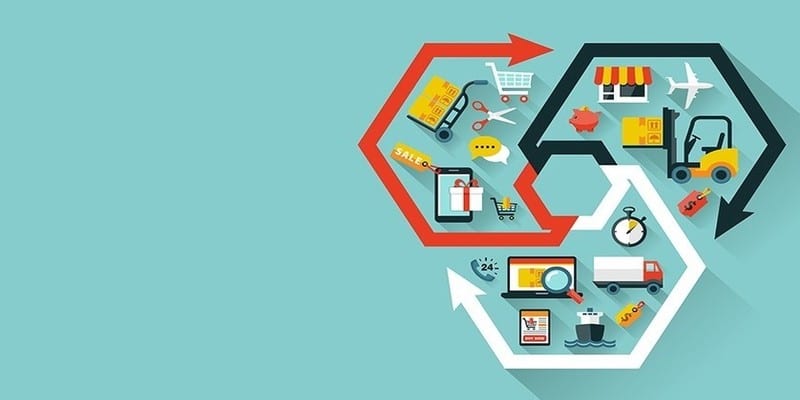Recently, there has been a huge turn of businesses towards using smart automation software to gain efficiency, enhance productivity and gain enough competency to stand on the market. The logistics business is not the exception and a trend for logistics mobile app development is the best proof of it.
Supply chain management (SCM) has always been a part of enterprise resource planning (ERP) solutions. Supply chain management involves handling the flow of goods from the raw manufacturing of products to the moment they reach a consumer.
The range of responsibilities of Erp in supply chain management involves a physical aspect of supply including storage and transportation and a market aspect that includes effective management of demand and supply to meet customers’ demands.
A rich-functional ERP allows coordination and integration of three main flows namely material, financial, and information.
Benefits Of Erp In Supply Chain Management
For the sake of justice, a complete supply chain management should include various management systems such as ERP and CRM for logistics and transportation companies. However, it’s ERP in supply chain management we’re going to talk about today. It would be correct to say that Erp helps in overall organizational growth. However, it would be unfair to leave other benefits of ERP for the supply chain in shadow. Here are the competitive advantages of the integration of ERP solutions in supply chain management.
Smooth Operations
ERP in the supply chain reduces the bottlenecks between in-house operations and external suppliers. A rich-features ERP helps in handling proper procurement and supply of goods, services, and other resources necessary throughout the entire supply chain.
Reduction Of Overhead Costs
The software improves the quality of demand forecasting and ensures minimized cost of inventory in case of a large production process. Besides, the lean inventory allows using the just-in-time production model to reduce the cost of goods and maintain flexibility of the supply chain.
Faster Decision Making
ERP connects different chains allowing employees from different departments to share valuable data in real-time. Subsequently, each worker has faster access to information and can act immediately according to the data they receive. This favors managers making critical decisions before it gets too late.
Added Transparency In Business
Apart from faster decision-making, ERP also empowers managers to make more balanced and accurate decisions. This is due to the consolidated view of the supply chain the software provides to business executives.
Erp Supply Chain Management Modules
Сompanies often use supply chain management modules from their ERP provider to handle and automate multiple tasks related to supply chain management. These are tasks related to planning, sourcing, manufacturing, deliveries, and returns.
Each module of supply chain management is dedicated to a specific step in the supply chain. So the basic modules include demand planning, procurement, manufacturing, inventory management, order management, and warehouse management.
Roles Of Erp In Supply Chain Management
From planning to shipment, ERP can favor a smoother flow of every process in supply chain management. Let’s overview its main contributions.
Demand and Planning
At the very beginning, ERP streamlines supply chain management by creating effective job scheduling. It helps supervisors plan proper delivery dates by giving them insights into what goods are being consumed and which are used. So, the demand and planning role of ERP involves keeping production policies consistent with demand, on-schedule replenishment, and lean inventory.
Procurement
Logistics ERP for the supply chain offers a more effective way of managing procurement and goods supply within the chain. Key manual tasks such as communications with vendors and suppliers as well as tracking communications can be automated with the software solution.
Production
The software enables the creation of bills of material. When the manufacturing process is launched, all records of labor and machine recourse and being tracked and updated in real-time. All shipping documents are recorded through ERP which eliminates the opportunity of human error.
Shipment
After the goods are shipped, the software can create the final invoice that will be sent to the customer. The functional capabilities of a system help in deciding the best packaging method and setting criteria for quality checks for both internal and external packages. One more vital role of ERP is tracking and maintaining all the shipping details to give managers and customers peace of mind that all goods will arrive on time.
